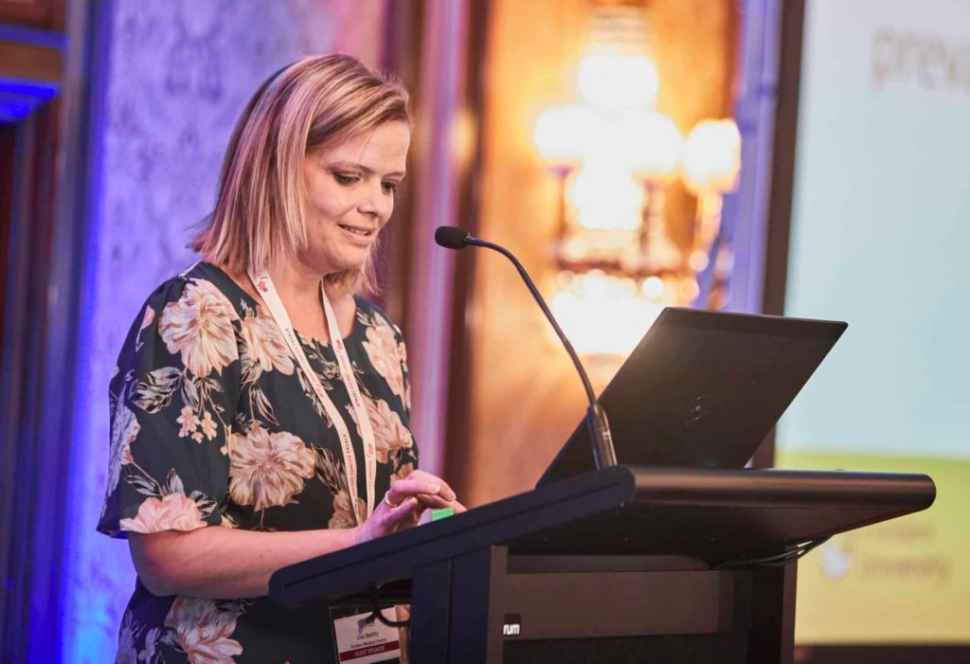
Addressing the Human Side of Cancer
At Flinders University’s Institute for Mental Health and Wellbeing, our researchers are addressing the psychosocial and mental health impacts of cancer, often overlooked in traditional care. Many people experience significant emotional distress, anxiety, and social disruption during and after treatment.
Access to timely, tailored psychosocial support remains limited, especially for those in regional areas or living with advanced disease. There is a critical need for scalable, evidence-based solutions that support mental health and wellbeing across the cancer journey.
Our researchers

Lisa Beatty is a Professor in Clinical Psychology at Flinders University, and a visiting Consulting Clinical Psychologist in Medical Oncology at Southern Adelaide Local Health Network. She has over 20 years of research and clinical expertise in the field of psycho-oncology (the scientific exploration of the psychological impact of cancer diagnosis and treatment).
Within this field, Prof Beatty specialises in digital psycho-oncology interventions, a strategy that aims to deliver evidence-based psychological treatments to those who may not be able to access them due to their health status, distance, or stigma. Lisa has led or supervised the development of multiple evidence-based digital psycho-oncology programs, including Finding My Way, Finding My Way-Advanced, and Healthy Living after Cancer-Online. Finding My Way is now a freely available online resource for the Australian cancer community and has been trialled by researchers in UK and USA.
Key career achievements include attracting 4.5 years of fellowship funding from Cancer Council SA, and over $4.5M in competitive project grant funding from a range of funders including National Health and Medical Research Council, Cancer Australia, Medical Research Future Fund, Beat Cancer Project, NorthWest Cancer Research, and Flinders Foundation. Lisa has published over 70 journal articles and 2 book chapters.
Prof Beatty is the Scientific Advisory Committee (SAC) Deputy Chair for the Psycho-Oncology Cooperative Research Group (PoCoG), and SAC Member for Breast Cancer Trials, two national cancer clinical trials groups funded by Cancer Australia.
Clinically, Prof Beatty sees adults affected by cancer at the Flinders Cancer Wellness Centre, a public psychology outpatient clinic, and supervises provisional psychologists on placement there.

Dr. Morgan Leske is a Registered Psychologist and Post-doctoral Researcher with a special interest in psycho-oncology and digital health. She completed her PhD at Flinders University, where she collaborated with Cancer Council SA to co-design an online healthy living intervention for post-treatment cancer survivors. Her research combines quantitative and qualitative methodologies, with a focus on person-centred approaches, to improve the accessibility and relevance of psychosocial support in cancer care.
Currently, she is involved in several research projects co-designing and evaluating online psychosocial interventions across the cancer care continuum, including for individuals recently diagnosed with cancer and women living with advanced breast cancer. She is particularly interested in how engagement in these interventions can be optimised with cancer-specific tailoring and human support to improve quality of life for people living with or beyond cancer.
PhD Students
Ms Kaya He
Kaya's research explores cross-cultural variations in the experience of positive body image after breast cancer diagnosis.
Ms Liberty Barry
Liberty's research is on the co-design and feasibility testing of 'Finding My Way-Micro', an ultra-brief digital psychological intervention for curatively treated cancer survivors.
Ms Amy Rigg
Amy's research is on establishing the optimal type and duration of guidance/human support for 'Finding My Way-Advanced', our digital mental health program for women with metastatic breast cancer.
Clinical Masters Students
Ms Nicola Freeman
Nicola's research is qualitatively evaluating the feasibility and acceptability of adding in human support/guidance to 'Finding My Way-Advanced'.
Ms Emma Zaina
Emma's research explores whether 'Finding My way-Advanced' leads to any positive psychological/wellbeing outcomes (posttraumatic growth, benefit finding, resilience, life satisfaction).
Our research
Our research focuses on developing scalable, evidence-based digital interventions to support the mental health and wellbeing of people affected by cancer. Professor Beatty and her team design self-guided online programs that address cancer-related distress, improve emotional functioning, and reduce barriers to care. These interventions are tailored to different stages of the cancer journey, from early diagnosis to advanced disease, and are tested through rigorous clinical trials.
Research Impact
Finding My Way
Finding My Way is a six-module, evidence-based online coping program designed to support individuals recently diagnosed with cancer. It offers practical strategies to manage emotional distress, physical symptoms, and social challenges, helping users improve wellbeing and navigate treatment. Clinical trials show the program reduces psychological distress and short-term health service use, making it a valuable, accessible alternative to face-to-face support.
Finding My Way - Advanced
Finding My Way, Advanced is an internet-based self-help program designed to support women living with metastatic breast cancer. It offers accessible, evidence-based strategies to manage emotional distress, navigate treatment, and improve quality of life. The program is currently being evaluated through a multisite clinical trial to assess its impact and scalability.
Other ongoing research explores how to optimise digital interventions, such as adding therapist support, tailoring content, and testing ultra-brief formats, to improve engagement and outcomes.

New online tool to support people with metastatic breast cancer
Guiding people through the psychological impact of their breast cancer diagnosis.

New The 'Finding My Way' program
The program is designed to support people through their cancer diagnosis and provide strategies to live well despite this diagnosis.
Contact us
Email fimhwell@flinders.edu.au
![]()
Sturt Rd, Bedford Park
South Australia 5042
South Australia | Northern Territory
Global | Online
CRICOS Provider: 00114A TEQSA Provider ID: PRV12097 TEQSA category: Australian University








